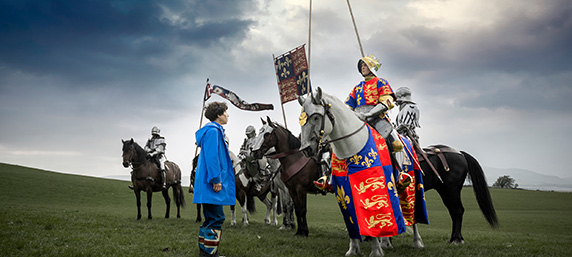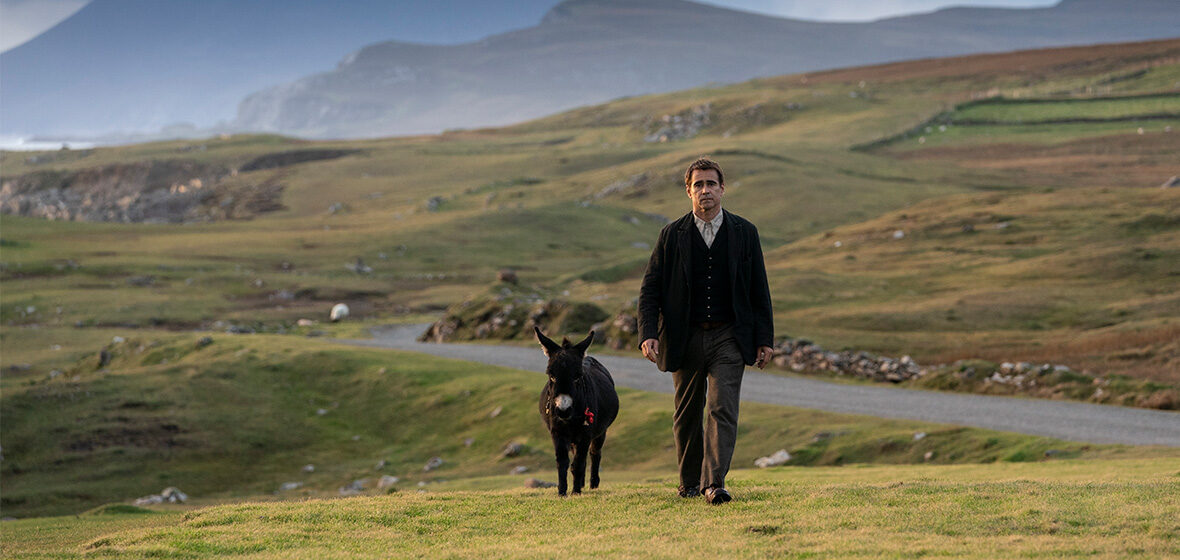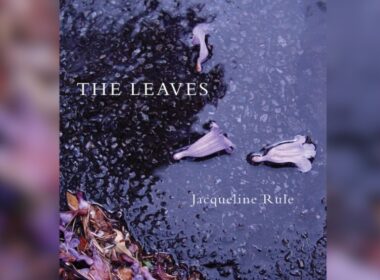The Banshees of Inisherin
5 out 5
I often think how lucky I am that I’m able to connect with others. And yet, as secure as I believe my friendships are, I have this gnawing feeling that even the strongest relationships can fall apart if someone happens to say the wrong thing. I fear that we’re always just one bad day away from being alone.
And I observed this fear lurking just beneath the surface as I watched The Banshees of Inisherin.
Irish writer/director Martin McDonagh’s new film sees him return to his native Ireland after conquering the world a couple of years ago with the award-winning Three Billboards Outside Ebbing, Missouri. I’ll spare you the issues I had with that film, though I could write a dissertation on the topic. But now I think I’ve got it figured out: McDonagh is an enormously talented writer who works at his best when he’s in a world he understands, among people he knows. When the setting is in his own backyard, he charges the screen and the dialogue with so much detail and inserts so many layers that the film feels like a living creature. The magic that existed in In Bruges returns here.
The story follows two friends, Pádraic (Colin Farrell) and Colm (Brendan Gleeson), living on a small island during the Irish Civil War. Every day Pádraic picks up his friend at 2 pm, and the two of them go to the pub. That is, until the one day when Colm tells him to go on his own.
“I just don’t like you no more”, he says. And Pádraic is expected to leave it at that.
But who would do that? We humans, social creatures that we are, need closure, and Pádraic is preoccupied by the mystery of his friend’s sudden turn. He wants to know: was it something he said? Surely that must be the reason? So insistent is he that Colm gives him an ultimatum: every time you talk to me, I will cut off one of my fingers. He appears willing even to sacrifice his passion for playing the fiddle if he can make Pádraic leave him alone.
The Banshees of Inisherin is a comedy until it’s not. As the film progresses, we become increasingly aware that Colm broke away from his inseparable friend just because he wanted to. There’s no big, dramatic revelation: just life taking its toll. And the more we come to terms with this, the sadder the film gets. We feel for Colm, but we also start urging him to recognise that at some point one has to accept that things change, and that life goes on.
Change is part of the film’s central theme. The little village on the island seems isolated from the rest of the world. People do the same thing every day and meet the same people. Everyone knows the police officer beats his son Dominic (Barry Keoghan), and everyone knows the woman in the only shop on the island has all the gossip at her fingertips. And everyone knows that at 2 pm Colm and Pádraic are in the pub. Not many people in that small place are constrained by routine other than Colm, and Pádraic’s sister Siobhán (a tremendous performance by Kerry Condon). It says something about Pádraic’s naiveté that he doesn’t realise the two people closest to him are discontented with the same life that makes him happy.
McDonagh doesn’t give us much information about the past of both characters, but he sprinkles small but telling details in the background, so that the full range of their respective characters is gradually revealed. For example, I particularly loved the way we gradually come to see that Colm’s house is filled with items he has collected over the years, from Japanese Kabuki masks to French marionettes and vinyl records. Settling in a place where time stands still would clearly not be satisfying for a man who is storing his memories of other times and other places.
The Banshees of Inisherin is the best kind of sad film. It’s the comforting type: in its melancholy lies a cozy serenity. Pádraic’s happy ignorance is excruciating at the start. But by the end of the film I envied his perspective. Surely, in an ideal world we would all be Pádraics.

The Lost King
3 out 4
Filmmakers love a story about healthy obsessions because they reveal the best in humans. We have it in us to change the world, if only we applied the full weight of our energy to doing so. Family? Work? All are trivial in relation to a grand task — in this film, the task of finding the remains of Richard III and finally proving he was not a usurper. To each his own.
But I’m being unfair: The Lost King is a harmless film. It’s directed by Stephen Frears, a veteran among crowd pleasers who thankfully never succumbs to over-sentimentality. His career is a hodgepodge of genres, yet his films are always professionally made, without much pomp and circumstance. Browse his filmography, and you’ll see work you like, and might even love.
The Lost King is co-written by Steven Coogan, who’s entering the Zen phase of his career after breaking and reshaping the British comedy mould with Alan Partridge. Under the supervision of Frear’s experienced eye, Coogan’s script is, again, just a solid, well-built piece of writing that doesn’t try to be subversive. I’ve never been into belittling a film for not trying to be more than it promised on the tin. If anything, Frears and Coogan have a career where they have perfected the art of talking in a way that makes everyone listen.
The story is straightforward. Unhappy in her job, Philippa Langley (Sally Hawkins) sees a performance of Shakespeare’s Richard III and is bothered by the idea of connecting the notorious king’s villainous traits with his physical disability (his hunchback). Philippa believes there’s more to this story than both Shakespeare and the history books have said, and investigates the king’s life; more importantly, she seeks his resting place. This leads her to meet a group of well-meaning nerds who call themselves the Richard III Society and gather in pubs to talk about how unfairly treated the king was. She also encounters an archeologist from the University of Leicester (played by Mark Addy).
If you know the story, there is not much to be added by offering a summary of what led to the big news item that shook the British monarchy and the history buffs. If you don’t know the story and are keen to spend some of your precious time watching something meaningful in the cinema, you could do much worse than The Lost King. The film is simple because it doesn’t have to show any complexities; Philippa’s pursuit is the most important thing. It’s evident that Frears and Coogan were interested in the original case, as they are meticulous in their approach, leaving the impression of a group of nerds focusing on their favourite obsession.
Some subplots add weight to the story, and perhaps too much weight is given to the role of Philippa’s ex-husband, played by Coogan. But still there is nothing that distracts too much from Philippa’s quest.
It’s interesting to see how the film portrays private institutions before and after the excavation. The University of Leicester comes across as a soulless institution of bureaucrats, who would have shut down the archeology department had the opportunity not arisen to find out more about Richard III. Even then, they stepped in only when it was certain that there would be a profit in the quest.
After the film’s release, the filmmakers were criticised for attributing too much importance to Philippa’s role in the discovery. At this time, one UK University is suspending courses that don’t lead to “well-paid jobs”, and in a way The Lost King mirrors this jaded approach.
It offers a window into a dystopian future where progress is led not by the will of humans to do good, but by the human tendency to change things – or to seek the 14th century remains of a maligned British King – only when we’re bored enough and unhappy enough.




